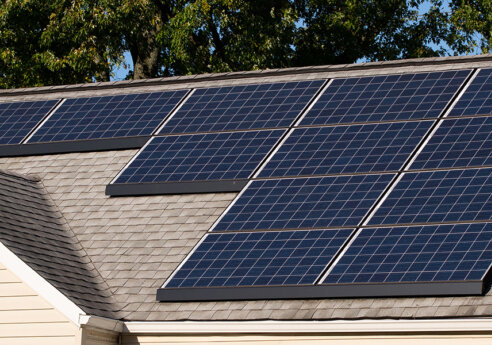Insulation is one of the most important and beneficial improvements you can make to your home. It helps you stay warmer in the winter, cooler in summer, lowers your energy costs and even helps with indoor air quality. So it’s really important to do things right. Follow these steps when planning your insulation project.
Consider an energy assessment
A home energy assessment will identify areas in your home that cause drafts, discomfort and high energy costs. Assessments performed by skilled and certified Trade Ally contractors will also include health and safety issues that you may not otherwise consider.
Find a qualified contractor
FOCUS ON ENERGY® offers a list of Trade Ally contractors in your area to help you avoid the guesswork and find a trusted partner for your project. Trade Allies are experts in energy-saving home improvements and can assist you all the way through the incentive process, bringing you cash back on your insulation upgrade.
Ask about air sealing
Air sealing works to prevent air leakage, a common problem that puts extra burden on your heating and cooling system and makes it harder and more expensive to maintain comfort. The typical trouble spots include attics, interior walls, electrical outlets and light fixtures. Your new insulation will be far more effective if you ask your contractor to evaluate and seal air leaks first.
Choose insulation materials
Common insulation materials include fiberglass, cellulose and spray foam. There are pros and cons to each, so make sure to discuss this with your contractor. Whichever material you choose, it’s important that the total thermal resistance—called R-value—of your insulation is no less than R-49, which usually equates to 16" of fiberglass or cellulose insulation. The higher the R-value, the better the insulation is at stopping heat transfer. To learn more about types of insulation and how to choose which is best for your home, check out this blog.
Get quotes and plan your costs
To provide a final quote, most contractors will first need to inspect your attic. For general reference, a straightforward attic insulation and air sealing project in an average size home generally costs between $2,000–$4,000, but many factors play into the final cost. The number one factor is typically square footage of the area being insulated, but insulation material, existing issues like knob and tube wiring or roof leaks, as well as ease of access to the area, are also factored in.
Focus on Energy is here to help make these projects easier and more affordable for Wisconsin homeowners. Find more information on financial incentives, as well as a list of Trade Ally contractors.




